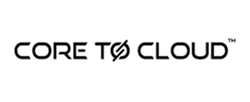Monday, June 17, 2024 by Max Sherwood
The challenge is set: "We need 50 product demos booked by the end of June," declares the Sales Manager. It's May 31st, and the sales team has one month to hit this target.
Marketing digs deep into their data set of warming MQLs and creates a targeted push to drive the all-important CTA. They then align the ISRs to jump on the merest flicker of interest that passes across one of the landing pages to book a meeting with the SE.

Marketing does its bit. Sales do theirs. 50 trials in the bag, surely? What could go wrong?
The buyer.
We want to meet them!
The desperation to close deals can often overshadow the importance of human connections and yet we’re awash with the opportunity to meet these individuals at events in the technology sector – tradeshows, lunches, dinners, webinars, virtual booze ups. There’s so much opportunity for interaction and relationship building, quarter ends should always be in the bag.
But let’s be clear. These interactions need working at. They’re not, in the most part, an indication of purchase intent, it’s simply a willingness to engage because they like the cut of a sales person’s jib, or they’ve seen something that interests them about a product or service. Unless the relationship is maintained it will never result in a win-win.
Another point is that this short-termism around such interactions not only burns cash (events in themselves return some of the lowest ROI for any marketing activity) and missed opportunities but also lends itself to long-term damage to brand reputation and customer loyalty.
Sales – a perspective of privilege?
Buyers hold the cash so there’s a fine line between sales success and disaster.
If we go back to the original challenge, the datasets - faceless lines of data in a CRM labelled as potential “demos” are individuals—fellow humans with personal views, opinions, perspectives, challenges and day jobs.
They work in businesses you’d like to convert into customers. You’re probably not particularly relevant to them right now or fit into their immediate plans, they just expressed digital interest because something about your business caught their eye. An ill-timed call with an offer they’re not ready for is more likely to turn them off than on.
Businesses often overlook these differing perspectives, revealing a critical gap in many strategies: the neglect of relationship-building and trust before attempting a sale.
The missing ingredient: Trust
Trust is the cornerstone of any successful relationship, and this is no less true in the world of B2B sales. Sales strategies often focus on immediate gains, prioritising short-term targets over the long-term health of customer relationships. This approach tends to overlook the fact that building trust can yield significant dividends, including customer loyalty, repeat business, and referrals.
The way buyers are treated if they don’t want to participate in the trial is as important as those who take part. It can make or break any future relationship in a quarter when they could be ready to move forward.
The importance of trust cannot be overstated. Buyers are more savvy and cautious than ever, with access to a vast amount of information about vendors and their competitors. They are likely to choose vendors who not only understand their needs but also demonstrate integrity and reliability over time. Trust is built through consistent, honest communication and by honouring commitments and expectations.
Building relationships before the pitch
Successful sales teams understand that their relationship with a potential customer begins well before any actual sales pitch and continues long after the deal is closed. Engaging with potential buyers early in their journey—without the immediate pressure of making a sale—helps establish a foundation of trust.
We know many of our selling audience truly believe they do all this, but we’d suggest a weak pipeline speaks for itself.
1. Educational outreach: Provide value through educational content, webinars, and workshops that address common challenges faced by your target audience. This positions your company as a helpful resource rather than just a vendor.
2. Consultative selling: Adopt a consultative approach where the focus is on understanding the buyer’s needs and offering solutions, rather than pushing products. This approach fosters a deeper, advisory relationship.
3. Personalised communications: Tailor communications to the specific needs and interests of each prospect. Personalisation shows that you are paying attention to the buyer’s unique situation and are committed to providing relevant solutions.
4. Patience: Respect the buyer’s timeline. Regular, thoughtful follow-ups that provide additional value and check in on the buyer’s needs can keep the relationship warm without being overbearing.
5. Transparency and honesty: Be clear about what your products can and cannot do. Honesty in discussions around pricing, capabilities, and limitations goes a long way in building trust.
Integrating human elements into sales and marketing
Sales and marketing teams must work closer together to ensure that their strategies both target the right audience and foster relationships. Marketing materials should speak to the buyer’s values and respect their intelligence, while sales teams should use these materials as tools to build relationships rather than just close deals.
Additionally, feedback mechanisms should be in place to learn from buyer interactions continually. This feedback can help refine approaches and ensure the company’s sales and marketing efforts are genuinely customer-centric.
Hands up who does this, whatever you’re selling?
In conclusion
B2B technology companies are well versed in building sales and marketing processes which appear to be efficient and logical, fully in the belief that both parties understand and deliver against their role in the process. Yet, sadly, the human element is often overlooked.
B2B selling isn't just about being strategic it’s about being human. Building trust and relationships is a powerful way to differentiate in a competitive market. Companies prioritising these elements are more likely to see sustainable growth, improved customer satisfaction, and a positive reputation in the industry.
Is it time for B2B companies to bring humanity back to the forefront of their sales strategies, where it belongs?
Frequently Asked Questions
Market Activation identifies in-market buyers (via intent data, behavioural signals) and immediately engages them with tailored outreach (nurture tracks, one-to-one advisor sessions, community invites).
Demand Engine: Targeted outreach (email, ads, sponsorships) that scores clicks → qualified leads → sales-ready appointments.
Performance Dashboard: Real-time visibility into open rates, CTOR, CPL and lead progression via our online sales portal.
Content Amplification: Thought leadership shared in The Amigos Network drives deeper engagement and social proof.
Peer Validation: Prospects get candid feedback from peers on your solutions, shortening the evaluation cycle.
Pipeline Catalysis: Warm introductions and referral paths within the community fuel high- intent conversations.
- Top-of-Funnel: Build credibility through community content and events.
- Mid-Funnel: Leverage peer case studies, expert Q&As, and live demos to answer deep technical questions.
- Bottom-of-Funnel: Invite high-intent members to advisory councils or private 1:1 sessions, often the final nudge before purchase.
- Interesting content: We originate, curate, and syndicate different types of content we know our audiences want to engage with and tell them it’s there.
- Sponsored content: We use sponsored content to drive engagement with individual brands.
- Promotion: We promote that content via multiple channels such as email, social media, YouTube, and so on.
- Identification: We ingest company-level engagement signals and combine it with known contacts that may be researching key topics.
- Segmentation: Members are bucketed by level of intent (high, medium, low) plus ICP fit and company size.
- Activation: High-intent members receive prioritised community invitations (events, focus groups, product deep-dives) to accelerate deals.
- Purchased data highlights who’s in-market.
- Community engagement reveals what questions they’re asking, so your nurture can be hyper-relevant.
- Result: A 2–3× lift in meeting acceptance and pipeline velocity vs. cold outreach alone.
- Marketing owns the nurture tracks, community invites, educational content, and event promos.
- Sales intervenes only at “high-intent + active community engagement” thresholds, with account-specific demos and peer introductions.
- Outcome: Fewer wasted calls and a higher win rate on truly qualified opportunities.
- Engagement Metrics: Community log-ins, event attendance, content downloads.
- Intent Conversion: % of intent-scored members who join private roundtables or request demos.
- Pipeline Velocity: Time from first community touch to opportunity creation.
- Revenue Impact: Contribution of community-sourced deals to overall bookings.
- Average Weekly Open Rate: 40%
- Average Weekly Click-to-Open Rate: 70%
- Average Cost-per-Lead: £45
- Minimum ROI: 500%
- Average Dwell Times: 1 minute 45 seconds




















